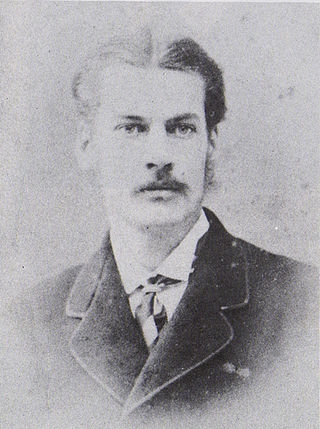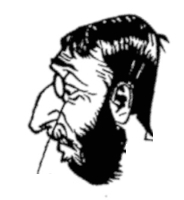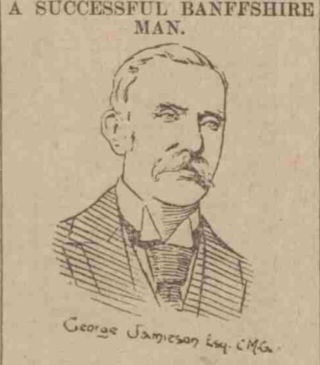In international law, extraterritoriality is the state of being exempted from the jurisdiction of local law, usually as the result of diplomatic negotiations.

Sir Ernest Mason Satow,, was a British scholar, diplomat and Japanologist.

Japan–United Kingdom relations are the bilateral and diplomatic relations between Japan and the United Kingdom.

Charles Wycliffe Goodwin (1817–1878) was an English Egyptologist, bible scholar, lawyer and judge. His last judicial position was as Acting Chief Judge of the British Supreme Court for China and Japan.

The Shanghai International Settlement originated from the merger in the year 1863 of the British and American enclaves in Shanghai, in which British and American citizens would enjoy extraterritoriality and consular jurisdiction under the terms of treaties agreed by both parties. These treaties were abrogated in 1943.

The Yokohama Archives of History in Naka ward, central Yokohama, near Yamashita Park, is a repository for archive materials on Japan and its connection with foreign powers since the arrival of Commodore Matthew Perry in 1853. The archives are next to Kaiko Hiroba where Commodore Perry landed to sign the Convention of Kanagawa.

The United States Court for China was a United States district court that had extraterritorial jurisdiction over U.S. citizens in China. It existed from 1906 to 1943 and had jurisdiction in civil and criminal matters, with appeals taken to the U.S. Court of Appeals for the Ninth Circuit in San Francisco.
The María Luz incident was a diplomatic incident between the early Meiji government of the Empire of Japan and the Republic of Peru over a merchant ship with Chinese indentured labourers in Yokohama in 1872. It was an early test of the independence of the Japanese judiciary system and a challenge to the extraterritoriality provisions of the unequal treaties then in force between Japan and the western powers.

The British Supreme Court for China was a court established in the Shanghai International Settlement to try cases against British subjects in China, Japan and Korea under the principles of extraterritoriality.

Sir Hiram Shaw Wilkinson, JP, DL (1840–1926) was a leading British judge and diplomat, serving in China and Japan. His last position before retirement was as Chief Justice of the British Supreme Court for China and Corea.

Hiram Parkes "Harrie" Wilkinson, KC served as Crown Advocate of the British Supreme Court for China and Japan from 1897 to 1925. He was also Acting Assistant Judge of the British Court for Siam from 1903 to 1905 and Judge of the British High Court of Weihaiwei from 1916 to 1925.

Sir Nicholas John Hannen was a British barrister, diplomat and judge who served in China and Japan. He was the Chief Justice of the British Supreme Court for China and Japan from 1891 to 1900 and also served concurrently as Consul-General in Shanghai from 1891 to 1897. He was judge of the British Court for Japan from 1881 to 1891. He was the brother of James Hannen, a noted British judge of the 19th century. His son, Nicholas "Beau" Hannen was a famous actor of the early and mid-20th century.
The British Court for Japan was a court established in Yokohama in 1879 to try cases against British subjects in Japan, under the principles of extraterritoriality. The court also heard appeals from British consular courts in Japan. Appeals from the British Court for Japan lay to the British Supreme Court for China and Japan based in the Shanghai International Settlement.

Sir Skinner Turner was a British judge who served in Africa, Siam and China. His last position was as the Chief Judge of the British Supreme Court for China from 1921 to 1927.

Sir Richard Temple Rennie was a British barrister and judge who served in China and Japan. He was the Chief Justice of the British Supreme Court for China and Japan from 1881 to 1891. He was judge of the British Court for Japan from its creation in 1879 to 1881.
Robert Anderson Mowat, was a British judge and diplomat, serving in China and Japan. His last position before retirement was as Judge of the British Court for Japan.
Student interpreter was, historically, an entry-level position in the British and American diplomatic and consular service, principally in China, Japan, Siam and, in the case of the United States, Turkey. It is no longer used as a title. A number of former student interpreters rose to senior diplomatic positions.

George Jamieson CMG (1843-1920) was a British diplomat and judge who served in China. His last position before retirement from government service was as British Consul-General in Shanghai.
Consular courts were law courts established by foreign powers in countries where they had extraterritorial rights. They were presided over by consular officers.

The Walsh brothers, Thomas Walsh, John Greer Walsh,, Richard James Walsh, and Robert George Walsh, were supposed American merchants seen in Japanese bibliography as the founders of the Walsh, Hall and the company.















